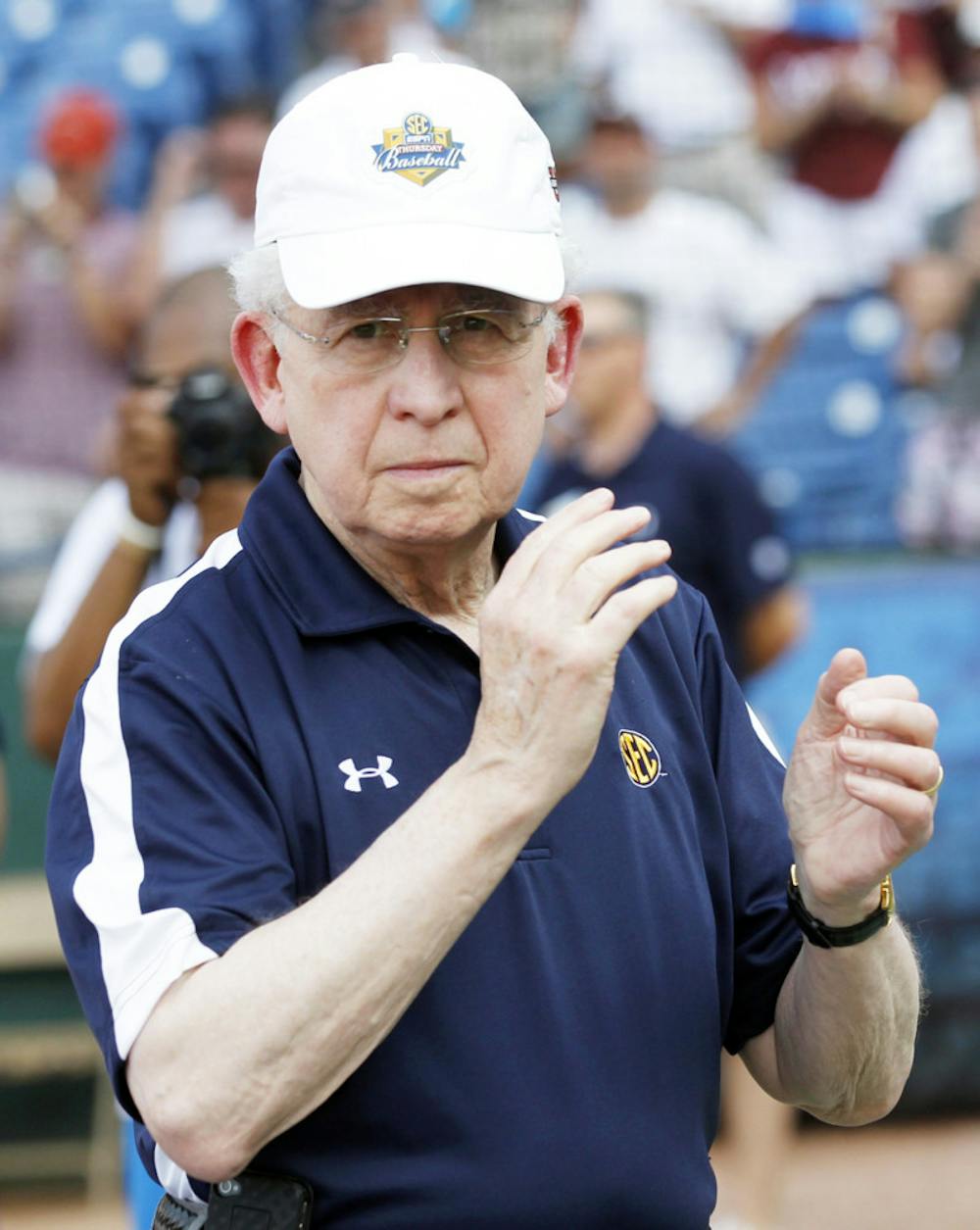BIRMINGHAM, Ala. — Southeastern Conference Commissioner Mike Slive has unfinished business and he isn’t leaving what has lately become college football’s penthouse anytime soon.
With two new members, six straight football national titles and a four-team playoff to determine future champions. Slive tells The Associated Press he has agreed to run the powerhouse SEC for “at least a couple more years,” continuing his decade-long tenure.
His contract was set to expire July 31, five days after he turns 72.
Slive is negotiating new TV deals that figure once again to be the most lucrative in college athletics. The exact method of choosing the four-team playoff field each season must be hammered out, and the SEC is trying to assimilate Texas A&M and Missouri into the now-14-team league.
The commissioner discussed those issues — and his future — in an interview ahead of SEC media days, which run Tuesday through Thursday in suburban Birmingham.
“I have agreed with the league that I will stay at least a couple of more years, and then we’ll sit down and decide what happens after that,” said Slive, who makes just over $1 million a year.
“Don’t forget it takes two. It’s not just me making a unilateral decision. Both of us need to make that decision.”
Auburn’s Jay Jacobs, chairman of the league’s athletic directors, noted that the SEC produced 42 Academic All-Americans, nine national team champions and seven runners-up in 2011-12.
“There’s absolutely no doubt in my mind that Mike Slive is the best commissioner in the nation,” Jacobs said. “It’s not an accident that the dominance of the SEC in recent years coincides with his tenure as commissioner. We all know the SEC has won six straight BCS national championships in football. His leadership transcends football and even all of athletics.”
The professorial Slive, who became a first-time grandfather this summer, has no shortage of projects before handing over the reins.
University presidents approved the switch to a four-team playoff model on June 26, similar to the one Slive proposed in 2008, three years into the SEC’s current run of dominance. It might have taken an all-SEC West showdown of Alabama vs. LSU in January to rally sufficient support from other commissioners, athletic directors and presidents.
Slive said conference commissioners will gather in September to work on details like revenue distribution and a college basketball-style selection committee for the four semifinalists.
“We’ll have to sit down and talk about what would be an appropriate number” for the committee, said Slive, who chaired the Division I Men’s Basketball Committee for the 2008-09 season. “There have been different numbers floated around — 16, 20. We certainly want to have enough members of the committee so that when certain committee members have to recuse themselves, we still have a significant group of people considering all the data and evaluating the teams.
“I visualize it working not unlike the men’s basketball committee that I was on and chaired for a year. You have both data and statistics and information, and then you couple that with what you see.”
The SEC might have had even more shots at a national title under the four-team system. The league had at least one team ranked among the Top 4 in the final BCS standings in 11 of the 14 years the system has been used.
Using that formula, at least, two teams would have made the cut in both 2006 (No. 2 Florida and No. 4 LSU) and 2008 (No. 2 Florida, No. 4 Alabama) as well as 2011. The first two times could have led to a rematch of the SEC championship game in the finale.
Slive demurs when asked if the change is yet another win for the SEC.
‘I think it’s a win for everybody,” he said. “It’s a win for college football in that all of us were able to come together in a collegial way and find a way to marry our own parochial interests as advocates for our leagues with our responsibility for what’s in the best interest of college football.”
Despite all that, the first order of business for the SEC is a likely return to the top of the heap in TV money. The league is renegotiating its pre-expansion 15-year, $2.25 billion TV deal with ESPN and a $55 million-a-year contract with CBS, both signed in 2008. The Pac-12 has a $3 billion TV deal.
Slive said “there is no fixed timetable” and he’s not sure if new deals will be in place before the SEC’s quest for national title No. 7 in a row begins.
“It’s hard to know because we have meetings scheduled throughout this summer,” Slive said.
“Whether or not those meetings come to a conclusion, I can’t predict.”
SEC schools each got a $20.1 million share of the financial pie in 2011-12.
Texas A&M and Missouri both give the SEC a big presence into sizable new TV markets as part of a wave of conference realignment.
“We believe that the expansion has increased our value for the purpose of television,” Slive said.
“It’s one of the many benefits that we believe we will derive, particularly in the long-term, from this expansion.”
Southeastern Conference commissioner Mike Slive applauds at the SEC Tournament on May 27. Slive contributed to the development of college football’s new four-team playoff format.






